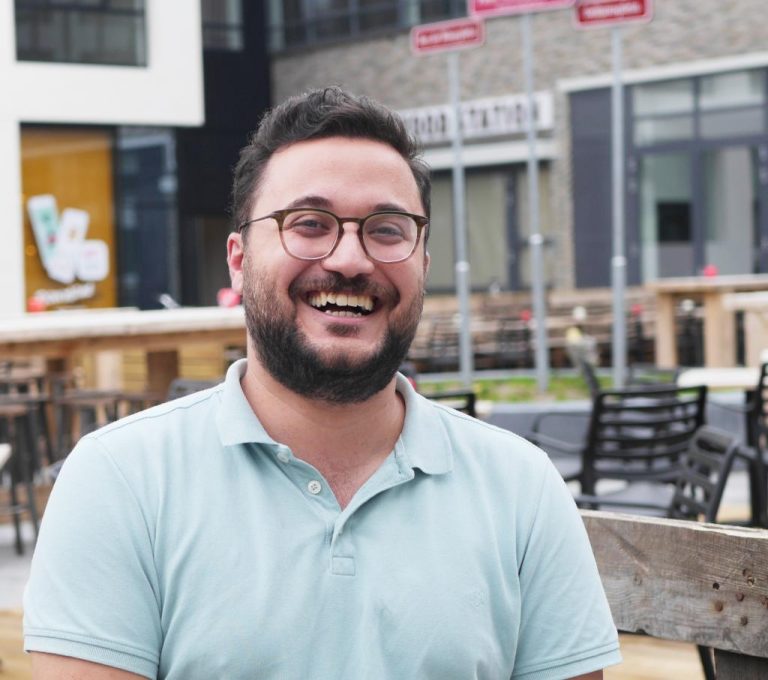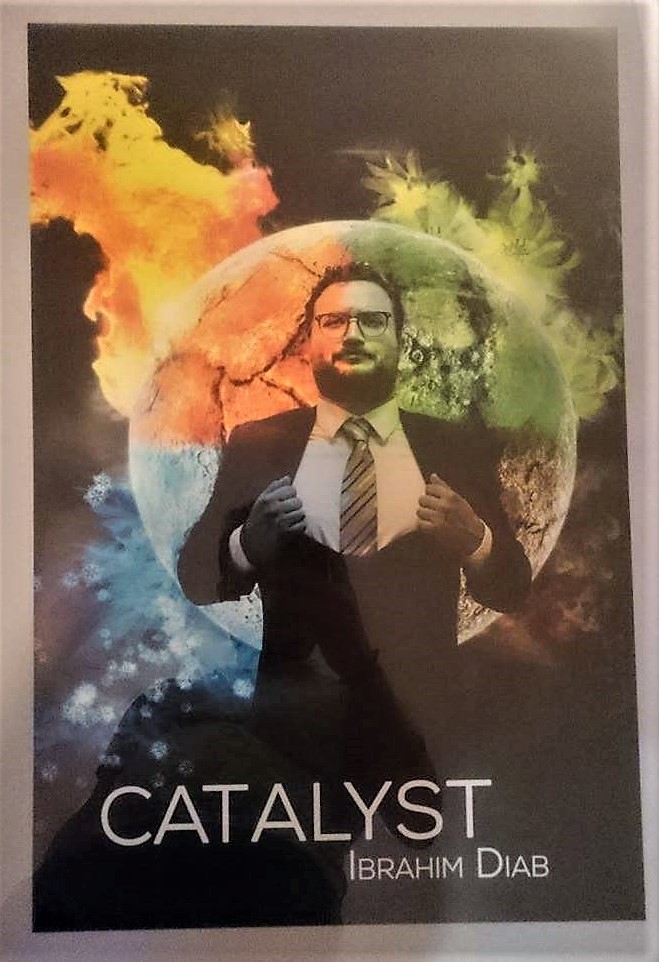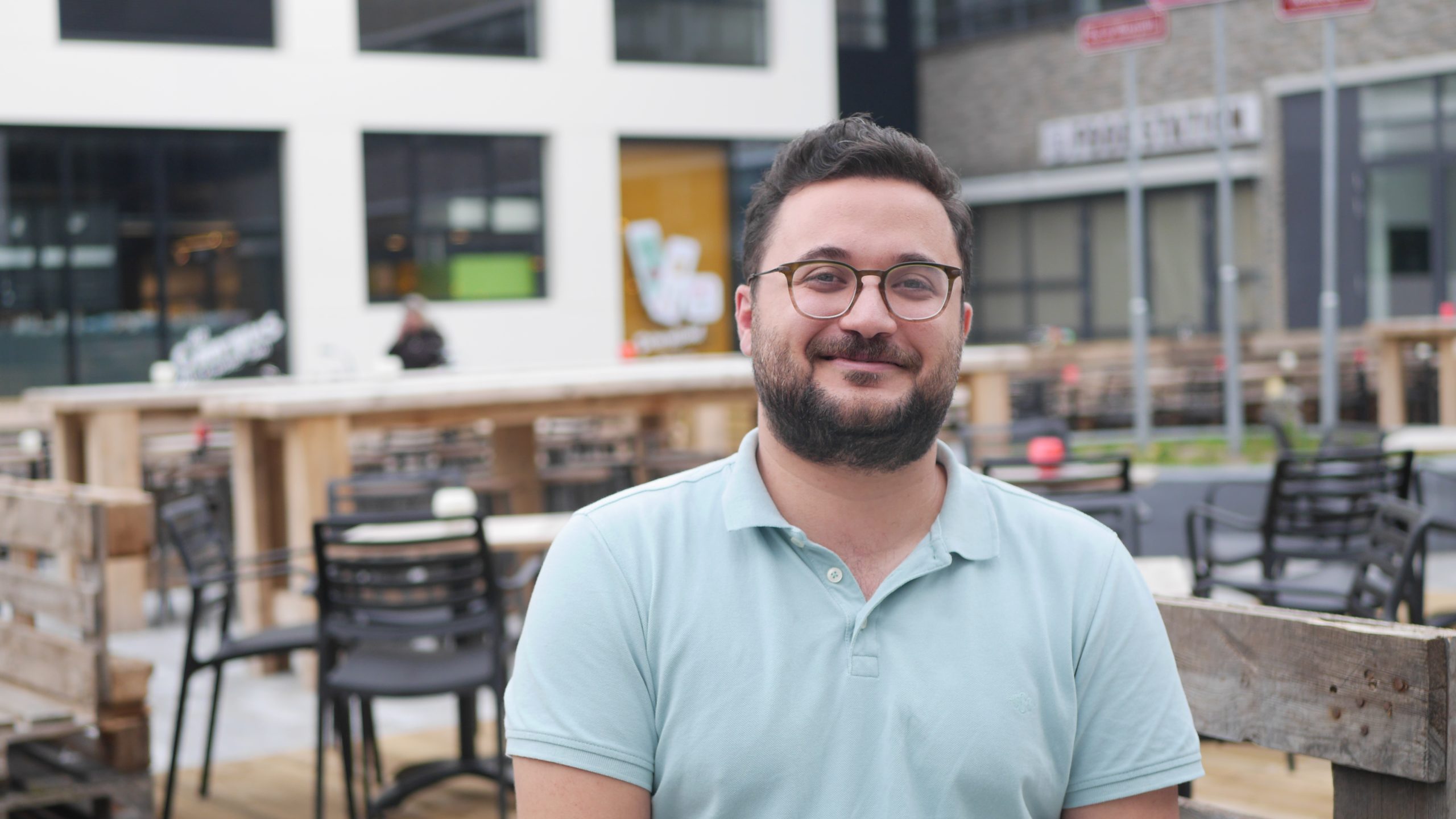TU student Ibrahim Diab was one of the finalists of the ECHO Award that was awarded last Friday. He didn’t win the coveted prize for excellent multicultural talent, but by being nominated he got a network that is worth way more.
The ECHO foundation is a platform for international students to enhance their personal development and be actively involved in society. You become an ECHO Ambassador if you are studying and do inspiring things that help society. You are nominated by your educational institution. Ambassadors get masterclasses from motivational people from international politics and professionals from the non-profit sector, network opportunities, brainstorm sessions at partner companies such as NS, and they need to organise a workshop for a primary school.
Sounds great, but do we need such an institution? Yes, says Pravini Baboeram, Program Manager at ECHO. “We need more positive imaging. Internationals still have fewer opportunities on the job market. We are not denying the cultural differences, but showing them. We want to show society that internationals are useful to society because of their backgrounds and that they can be very successful. You can be colour-blind and ignore that people are different, but you can also see the problems and help them disappear.”

Ibrahim Diab (26) is designing and creating a bachelor course in Classic Quantum Mechanics and he works for Elemental Watermakers as a Business Developer and Renewable Energy Consultant. He comes from Lebanon and had lived in the Netherlands for two years.
What did you do to get nominated?
“In the Netherlands, I was one of the three founders of the Delft Sustainable Energy Association of the Sustainable Energy Technology master. I was its first president. We also organised extra-curricular activities like pub crawls. The group has been growing over the last year and we are also attracting Dutch students. They are also on the board: two of the five board members are from the Netherlands.”
“Before I came to the Netherlands, I did a lot of volunteer work in Lebanon. I helped with the LGBTQ+ network and the National AIDS program; mentored new students; gave English and computer classes to migrants; gave physics lessons to high school teenagers and gave workshops on creative writing for teenagers. Given these experiences, TU Delft nominated me.”
What do you think of ECHO?
“I feel part of a family. When you are nominated, you become an ambassador. There are with 28 ambassadors and we have a Facebook and WhatsApp group where we speak daily. It is amazing to have friends in other cities in the Netherlands. It would have taken me years to grow a network like this. Besides that, my Dutch has improved. At the ceremony last Friday, I could understand about 90% of the Dutch. The people that came to the ceremony were all partners that are really involved, motivated and smart. It is a great network to be part of.”
 Although Ibrahim Diab didn’t win the first prize, he got a picture of himself as a superhero. “‘Catalyst’, because of my expertise and my skill to connect people”, he explains. (Photo: Ibrahim Diab)
Although Ibrahim Diab didn’t win the first prize, he got a picture of himself as a superhero. “‘Catalyst’, because of my expertise and my skill to connect people”, he explains. (Photo: Ibrahim Diab)What do you think of the selection process? Not everyone that is doing great things for society is nominated.
“This year there were four applicants from TU Delft, three of whom became ambassador. I was the only finalist from TU Delft. You can’t group everyone. The university has to see what you are doing before they can nominate you. Sometimes you don’t even realize that you are doing a good job, and sometimes the university doesn’t see that you are doing your best. ECHO helped me see the link between everything I had done so far: I am always helping dig up the potential in people. This is why the power profile they gave me was: The Catalyst. Do what you enjoy and what you are interested in, even small projects. Don’t go for the big projects just because they look good.”
What are your plans for the future?
“Careerwise, I want to do a PhD, but before that, I will do online courses in electrical engineering and I want to be a Renewable Energy consultant. In November, I will be an assistant at the System Integrating Project master course.”
“Volunteerwise, I think I can help LGBTQ+ refugees because I speak Arabic and Dutch and itdraws on my previous work too. I also want to restart creative writing. And I want to help with language problems. The Dutch teachers are trained to hear what you mean, so you think you can speak Dutch fluently, but when you speak to another Dutch person, they don’t understand you. I want to make safe places so that people can practice and build their confidence in their Dutch. I really would like to stay in the Netherlands!”
Roos van Tongeren / Redacteur



Comments are closed.